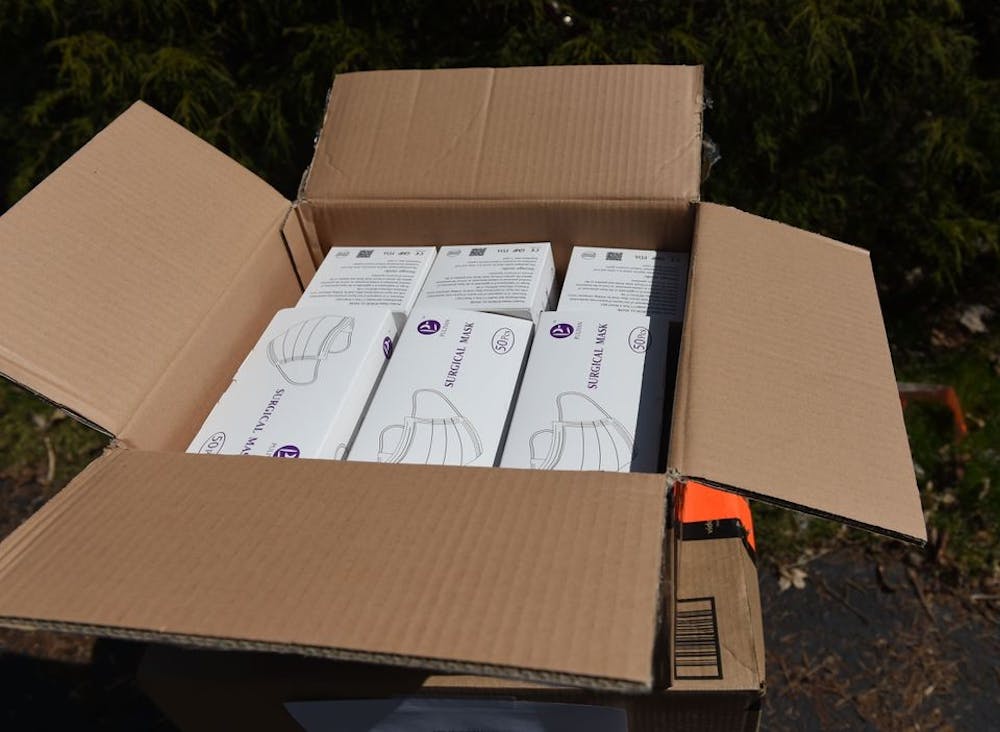I was released from the hospital in early March after receiving treatment for kidney transplant rejection. The treatment was a high dose of an immunosuppressant called thymoglobulin — on top of my usual daily immunosuppressants that transplant patients are typically prescribed.
During my time in the hospital, I knew COVID-19 was a growing concern, but it was too early to know how serious it would become in the U.S. More than 23,000 people in the U.S. have died as of Tuesday morning, according to the New York Times.
Being immunocompromised during this time is stressful, especially with discussions of who should live and who should get priority when there are shortages of medical supplies.
People who are immunocompromised are at greater risk of severe illness due to COVID-19, according to the Centers for Disease Control and Prevention. Conditions that can cause someone to be immunocompromised include cancer treatment, bone marrow or organ transplantation, immune deficiencies and prolonged use of immune-weakening medications, according to the CDC.
One of the most stressful parts is all the talk about who should be prioritized if resources run low. Many states and hospitals across the country have already said they have shortages of necessary medical supplies. The U.S. was unprepared for a pandemic. It's safe to say I’m a little paranoid about getting coronavirus.
I see a lot of social media commentary about how the virus mainly affects the elderly or the immunocompromised, groups causing the high mortality rate. However, this rhetoric is largely based in eugenics. Countries with shortages of medical supplies, such as Italy and the U.S., must face the reality of hospitals having to choose whose lives to save.
Triage for COVID-19 sometimes means choosing between saving the healthy and saving those who have lower chances of surviving.
Disability advocacy groups are beginning to worry about the triage strategies implemented by U.S. states. The triage guidelines used in Alabama, for example, consider those with mental disabilities “poor candidates for ventilator support.” Is it fair for governments to decide who gets to live based on chronic illness or disability?
When the argument of saving the strong over the weak is used, rhetoric comes into play that sound like eugenics. It's nauseating to see such rhetoric being used by some as if it's the best option for getting through the pandemic.
Being immunocompromised during this pandemic means I cannot buy myself groceries. I have to rely heavily on my roommates to get my necessities. My roommates also have to isolate themselves more than they would if I were not immunocompromised.
There’s also added anxiety from having to go to the hospital once a week for blood tests. Even though the hospital has taken extra precautions so it can provide proper care, I'm put at risk each time. It's reassuring, but also anxiety-inducing. It really sheds light on how serious this coronavirus is.
I am, obviously, not the only one in this situation, and many are in worse situations than mine. Many people are facing other conditions, such as chronic lung disease, asthma, diabetes, or heart conditions, that puts them at added risk, according to the CDC.
This crisis illuminates how chronically ill and disabled people are viewed today.
It is hard to say exactly what the best option to get through this pandemic is, and I do not have a solution. However, I certainly doubt that a triage system with eugenics-like ideas is the best, most efficient the way out of this crisis.
Rachel Cambron (she/her or they/them) is a senior studying English. She also writes poetry in her spare time.






